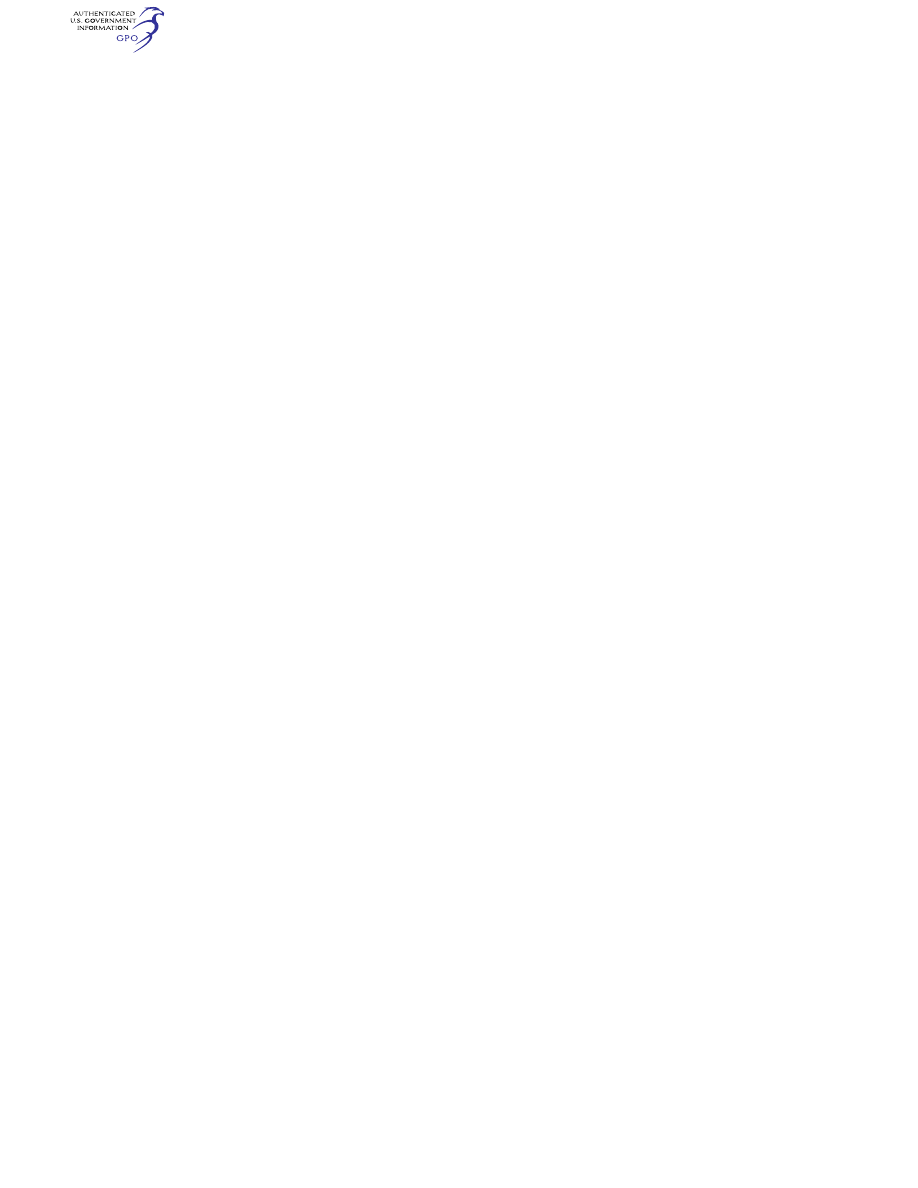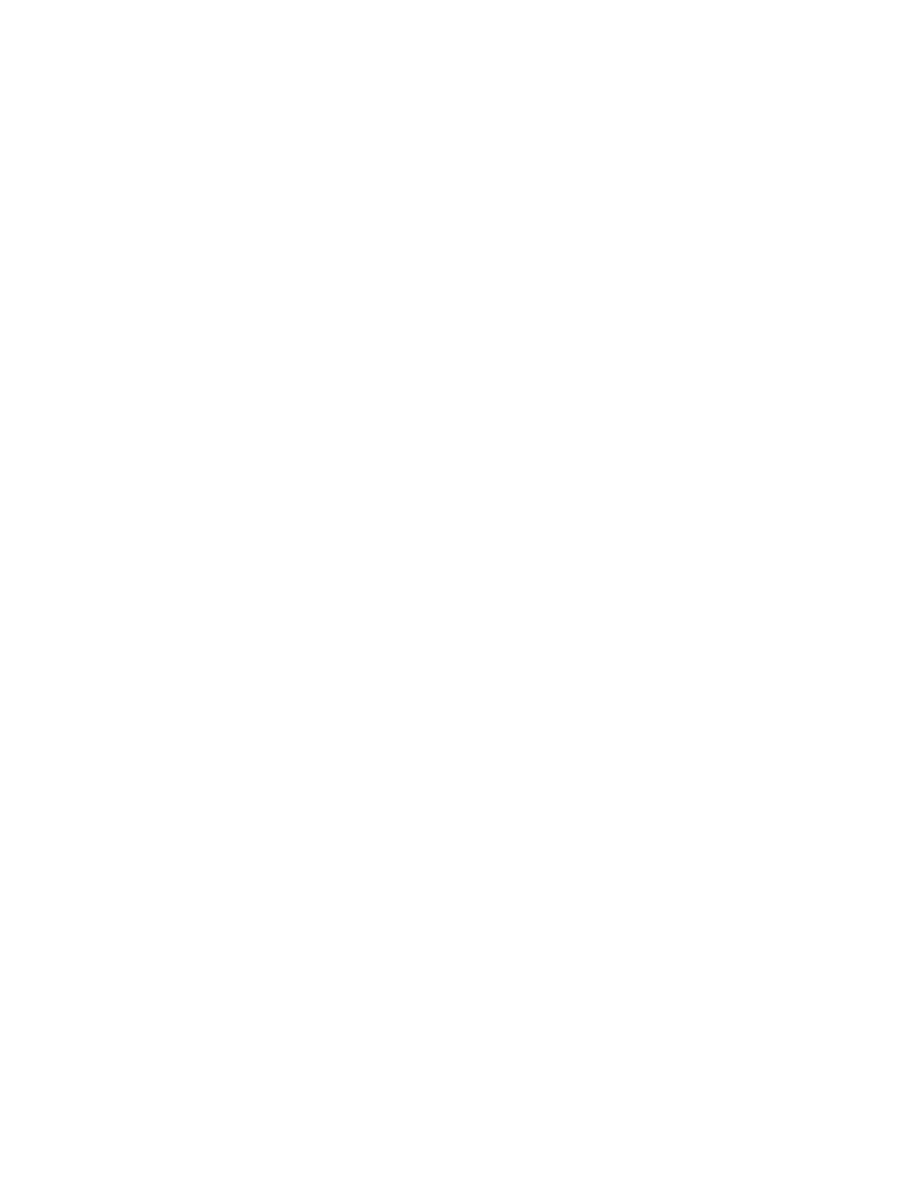
763
Federal Aviation Administration, DOT
§ 35.41
fixed-pitch wood propellers of conven-
tional design.
[Amdt. 35–8, 73 FR 63348, Oct. 24, 2008]
§ 35.39
Endurance test.
Endurance tests on the propeller sys-
tem must be made on a representative
engine in accordance with paragraph
(a) or (b) of this section, as applicable,
without evidence of failure or malfunc-
tion.
(a) Fixed-pitch and ground adjust-
able-pitch propellers must be subjected
to one of the following tests:
(1) A 50-hour flight test in level flight
or in climb. The propeller must be op-
erated at takeoff power and rated rota-
tional speed during at least five hours
of this flight test, and at not less than
90 percent of the rated rotational speed
for the remainder of the 50 hours.
(2) A 50-hour ground test at takeoff
power and rated rotational speed.
(b) Variable-pitch propellers must be
subjected to one of the following tests:
(1) A 110-hour endurance test that
must include the following conditions:
(i) Five hours at takeoff power and
rotational speed and thirty 10-minute
cycles composed of:
(A) Acceleration from idle,
(B) Five minutes at takeoff power
and rotational speed,
(C) Deceleration, and
(D) Five minutes at idle.
(ii) Fifty hours at maximum contin-
uous power and rotational speed,
(iii) Fifty hours, consisting of ten 5-
hour cycles composed of:
(A) Five accelerations and decelera-
tions between idle and takeoff power
and rotational speed,
(B) Four and one half hours at ap-
proximately even incremental condi-
tions from idle up to, but not includ-
ing, maximum continuous power and
rotational speed, and
(C) Thirty minutes at idle.
(2) The operation of the propeller
throughout the engine endurance tests
prescribed in part 33 of this chapter.
(c) An analysis based on tests of pro-
pellers of similar design may be used in
place of the tests of paragraphs (a) and
(b) of this section.
[Amdt. 35–8, 73 FR 63348, Oct. 24, 2008]
§ 35.40
Functional test.
The variable-pitch propeller system
must be subjected to the applicable
functional tests of this section. The
same propeller system used in the en-
durance test (§ 35.39) must be used in
the functional tests and must be driven
by a representative engine on a test
stand or on an airplane. The propeller
must complete these tests without evi-
dence of failure or malfunction. This
test may be combined with the endur-
ance test for accumulation of cycles.
(a) Manually-controllable propellers.
Five hundred representative flight cy-
cles must be made across the range of
pitch and rotational speed.
(b) Governing propellers. Fifteen
hundred complete cycles must be made
across the range of pitch and rota-
tional speed.
(c) Feathering propellers. Fifty cy-
cles of feather and unfeather operation
must be made.
(d) Reversible-pitch propellers. Two
hundred complete cycles of control
must be made from lowest normal
pitch to maximum reverse pitch. Dur-
ing each cycle, the propeller must run
for 30 seconds at the maximum power
and rotational speed selected by the
applicant for maximum reverse pitch.
(e) An analysis based on tests of pro-
pellers of similar design may be used in
place of the tests of this section.
[Amdt. 35–8, 73 FR 63349, Oct. 24, 2008]
§ 35.41
Overspeed and overtorque.
(a) When the applicant seeks ap-
proval of a transient maximum pro-
peller overspeed, the applicant must
demonstrate that the propeller is capa-
ble of further operation without main-
tenance action at the maximum pro-
peller overspeed condition. This may
be accomplished by:
(1) Performance of 20 runs, each of 30
seconds duration, at the maximum pro-
peller overspeed condition; or
(2) Analysis based on test or service
experience.
(b) When the applicant seeks ap-
proval of a transient maximum pro-
peller overtorque, the applicant must
VerDate Sep<11>2014
09:06 Jun 28, 2024
Jkt 262046
PO 00000
Frm 00773
Fmt 8010
Sfmt 8010
Y:\SGML\262046.XXX
262046
jspears on DSK121TN23PROD with CFR

764
14 CFR Ch. I (1–1–24 Edition)
§ 35.42
demonstrate that the propeller is capa-
ble of further operation without main-
tenance action at the maximum pro-
peller overtorque condition. This may
be accomplished by:
(1) Performance of 20 runs, each of 30
seconds duration, at the maximum pro-
peller overtorque condition; or
(2) Analysis based on test or service
experience.
[Amdt. 35–8, 73 FR 63349, Oct. 24, 2008]
§ 35.42
Components of the propeller
control system.
The applicant must demonstrate by
tests, analysis based on tests, or serv-
ice experience on similar components,
that each propeller blade pitch control
system component, including gov-
ernors, pitch change assemblies, pitch
locks, mechanical stops, and feathering
system components, can withstand cy-
clic operation that simulates the nor-
mal load and pitch change travel to
which the component would be sub-
jected during the initially declared
overhaul period or during a minimum
of 1,000 hours of typical operation in
service.
[Amdt. 35–8, 73 FR 63349, Oct. 24, 2008]
§ 35.43
Propeller hydraulic compo-
nents.
Applicants must show by test, vali-
dated analysis, or both, that propeller
components that contain hydraulic
pressure and whose structural failure
or leakage from a structural failure
could cause a hazardous propeller ef-
fect demonstrate structural integrity
by:
(a) A proof pressure test to 1.5 times
the maximum operating pressure for
one minute without permanent defor-
mation or leakage that would prevent
performance of the intended function.
(b) A burst pressure test to 2.0 times
the maximum operating pressure for
one minute without failure. Leakage is
permitted and seals may be excluded
from the test.
[Amdt. 35–8, 73 FR 63349, Oct. 24, 2008]
§§ 35.45–35.47
[Reserved]
A
PPENDIX
A
TO
P
ART
35—I
NSTRUCTIONS
FOR
C
ONTINUED
A
IRWORTHINESS
A
35.1
GENERAL
(a) This appendix specifies requirements
for the preparation of Instructions for Con-
tinued Airworthiness as required by § 35.4.
(b) The Instructions for Continued Air-
worthiness for each propeller must include
the Instructions for Continued Airworthiness
for all propeller parts. If Instructions for
Continued Airworthiness are not supplied by
the propeller part manufacturer for a pro-
peller part, the Instructions for Continued
Airworthiness for the propeller must include
the information essential to the continued
airworthiness of the propeller.
(c) The applicant must submit to the FAA
a program to show how changes to the In-
structions for Continued Airworthiness made
by the applicant or by the manufacturers of
propeller parts will be distributed.
A
35.2
FORMAT
(a) The Instructions for Continued Air-
worthiness must be in the form of a manual
or manuals as appropriate for the quantity
of data to be provided.
(b) The format of the manual or manuals
must provide for a practical arrangement.
A
35.3
CONTENT
The contents of the manual must be pre-
pared in the English language. The Instruc-
tions for Continued Airworthiness must con-
tain the following sections and information:
(a)
Propeller Maintenance Section. (1) Intro-
duction information that includes an expla-
nation of the propeller’s features and data to
the extent necessary for maintenance or pre-
ventive maintenance.
(2) A detailed description of the propeller
and its systems and installations.
(3) Basic control and operation information
describing how the propeller components and
systems are controlled and how they oper-
ate, including any special procedures that
apply.
(4) Instructions for uncrating, acceptance
checking, lifting, and installing the pro-
peller.
(5) Instructions for propeller operational
checks.
(6) Scheduling information for each part of
the propeller that provides the recommended
periods at which it should be cleaned, ad-
justed, and tested, the applicable wear toler-
ances, and the degree of work recommended
at these periods. However, the applicant may
refer to an accessory, instrument, or equip-
ment manufacturer as the source of this in-
formation if it shows that the item has an
exceptionally high degree of complexity re-
quiring specialized maintenance techniques,
test equipment, or expertise. The rec-
ommended overhaul periods and necessary
VerDate Sep<11>2014
09:06 Jun 28, 2024
Jkt 262046
PO 00000
Frm 00774
Fmt 8010
Sfmt 8002
Y:\SGML\262046.XXX
262046
jspears on DSK121TN23PROD with CFR

